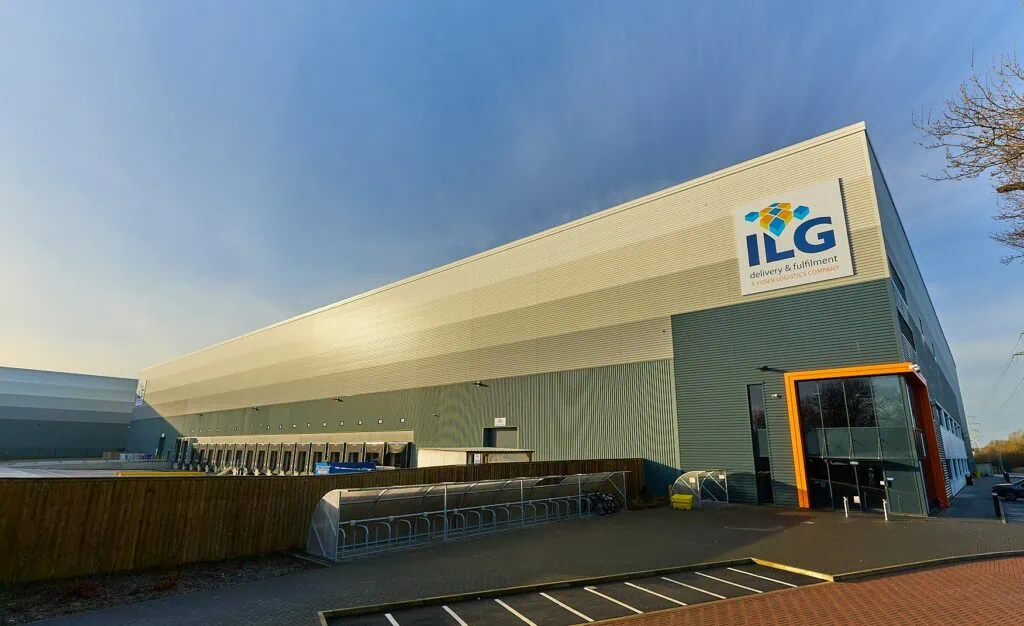
Tom Ashley, Managing Director
The decision to outsource your fulfilment to a third party is not one that any business takes lightly. At ILG we liken it to entrusting your children to a babysitter for the first time. There is a lot of reassurance required before you feel ready to let go.
Signs that it might be time to outsource
The most common reasons for choosing to outsource your fulfilment usually centre around either a desire to grow the business or a desire to get away from managing warehouses… or both. Here are some of the reasons cited by our customers.
Large forecasted growth
If business is booming, think about the demand on your existing stockholding and fulfilment capabilities. Assuming they have been running efficiently, there won’t be much slack to accommodate the extra workload. This is a good time to take on a fulfilment partner with plenty of scalable capacity to support your longer-term growth.
An existing relationship is coming to an end
Whatever the reason for the end of a relationship, it presents a golden opportunity to re-evaluate your needs and find a new solution that is better suited to your brand. A fulfilment partner should feel like part of your business, fully understanding your products and your customer needs.
A warehouse lease is coming to an end
Do you need to move out of your current facility in the coming months? If so, it will be important to avoid disruption to your stock-keeping and fulfilment functions. Rather than find another facility and commit to a new lease, this could be an ideal opportunity to outsource.
Launch of a new product
Expanding your product portfolio means flexing your fulfilment capabilities. You will want this to be a complete success and it could be a good way to trial a new supplier without moving the entire business.
Finances add up
Your books show that it makes good financial sense to outsource. Your fulfilment spend is fairly easy to evaluate. As a general rule, the total annual cost of your logistics excluding carriage should not be more than 6% of your yearly turnover.
Outgrown your current facilities
If your warehouse is almost full to capacity and you are facing the need for extra fulfilment space, outsourcing to a third-party could be an easier, more cost-effective alternative to acquiring, equipping and resourcing additional facilities of your own.
10 good reasons to outsource your fulfilment
1. Only pay for what you use
We run an activity based cost model, which means that customers are charged only when they’re items are touched, for example, booking in, quality checking or dispatching. This means a big reduction in fixed costs compared to running your own fulfilment operation, where you will have to pay for your own warehouse and office space whether you’re processing 100 orders a day or just one. At ILG, the only fixed costs our clients receive are storage, IT and management fees.
2. Pass on the responsibility for Health & Safety
Running a warehouse comes with risks, particularly where heavy machinery is involved. Outsourcing places the responsibility for Health & Safety solely on your provider, who should already be fully set up to comply with the regulations and provide the correct equipment, training and procedures to keep staff safe.
3. No staff absence worries
Members of staff calling in sick can really hurt your business, especially if you run a small fulfilment team. Outsourcing to a fulfilment partner will give you access to a much larger pool of trained labour and put an end to your unforeseen staff shortages. You can be assured that any absences are fully under control and your fulfilment operation is always well resourced.
4. Concentrate on what you do best
This for me is the most compelling reason for outsourcing. I’ve yet to meet a client who got into fashion or beauty with the hope of running a warehouse. Outsourcing to a trusted logistics partner removes the stresses and strains of managing day-to-day operational pressures, allowing you to focus on the bit you love and get creative.
5. Fine-tune your marketing strategy
As well as giving you more time to develop your products and designs, outsourcing your fulfilment will also free up time for you to study your competitors and customer insights, so you can plan your sales and marketing for even better results.
6. Reduce your shipping costs
Typically, fulfilment companies manage logistics for numerous clients and ship thousands of items each day. This gives them considerable purchasing power with carriers and enables them to pass on savings to their clients. At ILG, we secure highly competitive rates from a range of carriers, and offer our clients delivery charges much lower than they would be able to negotiate themselves.
7. Increase the working day
Most fulfilment houses will run on a start early/finish late timetable to maximise the working day. One of the big advantages to your customers is that this allows a bigger window for same day dispatch and next day delivery, so be sure to check cut-off times as this can give your sales a real USP.
8. Access the global marketplace
These days, access to global markets is much more challenging due to Brexit, the pandemic and other macrofactors. If you are opening up your products to a worldwide audience and shipping orders overseas, it makes good sense to engage a fulfilment specialist with expert knowledge of international logistics. This will help you to navigate local customs regulations and get your shipments to overseas customers on time, at the right cost.
9. Scale for your growth
If you have plans to grow, your fulfilment operation will need to scale up too. Instead of buying or renting a bigger warehouse, why not outsource to a fulfilment partner that can grow with you? At ILG we look after a wide range of clients, from smaller companies with just a few orders per day, to well-established brands selling thousands of products daily. We understand the needs of growing e-commerce businesses and can adapt our resources to match spikes in demand. We have helped some clients grow from start-up to processing over 20,000 orders per day in peak months.
10. Access industry expertise
Outsource to an e-commerce fulfilment specialist and you benefit from a wealth of knowledge and experience. ILG’s clients draw on our expertise in shipping, gift-wrapping, personalisation, returns management, accreditations, sustainability and so on. This ensures their fulfilment is managed for maximum efficiency from the start, and creates an exceptional experience for their customers.
Finding the right fulfilment partner
Choosing the right company to handle your goods is no easy decision, so take into consideration these 6 things when looking for the right fulfilment partner.
1. Choose a specialist
Firstly, make sure they offer professional fulfilment services and not just storage space. You’ll come across a lot of companies that have other core interests and only offer space and fulfilment services as a secondary revenue stream. We would recommend you steer clear of anyone that isn’t a fulfilment provider first and foremost and ensure you appoint a professional company that shares your goals and objectives and has industry experience.
2. Activity-based cost model
Keep your fulfilment costs in line with your product sales and business performance by ensuring you only pay for what you use. Expect fixed costs for storage, IT and some admin or management functions, but most of your costs should be tied to activity. That way you ensure that your costs for fulfilment are kept in line with your business performance.
3. Try before you buy
Road-test your potential partner by trying out their fulfilment service. Become a mystery shopper to trial the customer experience and see how they perform. What is their communication like? How good is their packaging? How well do they align with their client’s branding? Is the product you receive the one you ordered? Did it arrive well wrapped and in perfect condition? See what you like and dislike and consider these when assessing your outsourcing options.
4. Retail experience
Look for a fulfilment partner with expertise in distributing stock to retail outlets and distribution centres, as well as fulfilling e-commerce orders. Use their knowledge of vendor manuals and time slot management to ensure all your stock shipments arrive on time and meet retailer requirements. Keeping all your B2C and B2B order fulfilment under one roof will make your operations more efficient and drive significant savings.
5. Do they understand your brand?
A good fulfilment partner should be an extension of your brand and invisible as far as your end-customer is concerned. Any goods or communications your customers receive should look like they come straight from you. So make sure your potential partner understands your brand, products, target audience and business objectives. Look for a provider with experience in your sector and proof of success via case studies, testimonials and reviews.
6. Feel confident
This is probably the most important factor. You are placing your goods and brand reputation in the hands of a third party. A good fulfilment provider will do everything it can to reassure you that your brand image is just as important to it as it is to you, and demonstrate the capability and attitude to make you look good. This reassurance, together with positive personal chemistry, should give you the confidence to make the right choice.
Outsourcing your fulfilment is a significant decision and can be the key to unlocking growth, efficiency and scale for your brand. Different fulfilment companies provide different levels of service and costs can vary accordingly. Ultimately, the one you choose should be the most well-suited to your products, your brand and the level of service expected by your customers.
Ready to outsource your fulfilment? Talk to ILG todayContact Us
More insights >
How to Manage Your Stock with SKU Numbers: Best Practice Guide
If you’re an e-commerce business, efficient inventory management is essential – and one important part of this is understanding SKU numbers.
ILG is a Finalist for Best Logistics Solution at the BeautyMatter 2025 Awards!
We’re thrilled to announce that for the third year in a row, ILG is a finalist for ‘Best Logistics Solution’ at the BeautyMatter 2025 Awards!

